How Often Should You Clean Your Air Conditioner
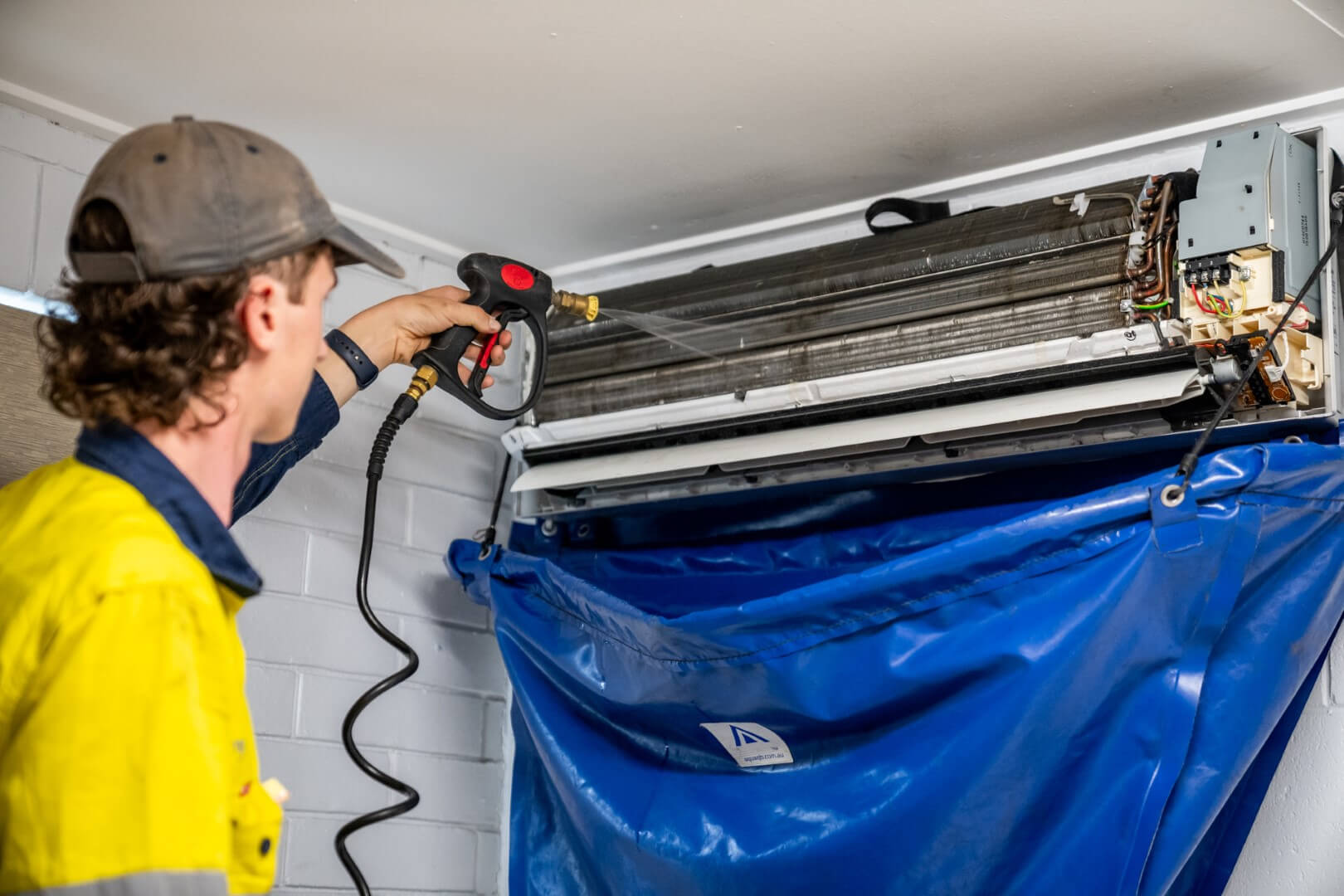
Wondering how often you should clean your air conditioner? We’ve got the answers.
The first thing to consider is the type of system you’ve got and where it’s running. For most homes, cleaning your air conditioner filter every 4 weeks during regular use is a good rule of thumb, while a professional deep clean should be conducted yearly. Commercial systems on dirty or dusty sites may need a professional deep clean every 3-6 months to keep them working perfectly
Stay on top of your cleaning schedule and you’ll enjoy lower power bills, cleaner air, and a system that lasts longer.
Let’s take a deeper look at how and why you should clean your air conditioner filter.
What is an air conditioner filter?
You may not realise it, but your filter is one of the hardest-working parts of your air conditioner. It sits behind the return air grille and traps dust, dirt, pollen, and pet hair before they reach the system.
When your filter is clean, your air will flow freely, your family will breathe easier, and your air conditioner won’t have to work overtime.
How often to deep clean your air conditioner
Here’s a quick guide based on the type of system you’ve got.
- Split systems or ducted air conditioning: Clean your filters monthly and schedule a professional deep clean once a year
- Commercial systems on dusty or dirty sites: Filters should be cleared more regularly with professional clean every 6 months, some even quarterly depending on how harsh the environment is.
- Window or portable units: Filters can be cleaned monthly, with a professional deep clean once a year
Your environment makes a difference, too. Pet hair, dust, or pollen in the air will block a filter quickly if you don’t clean it regularly.
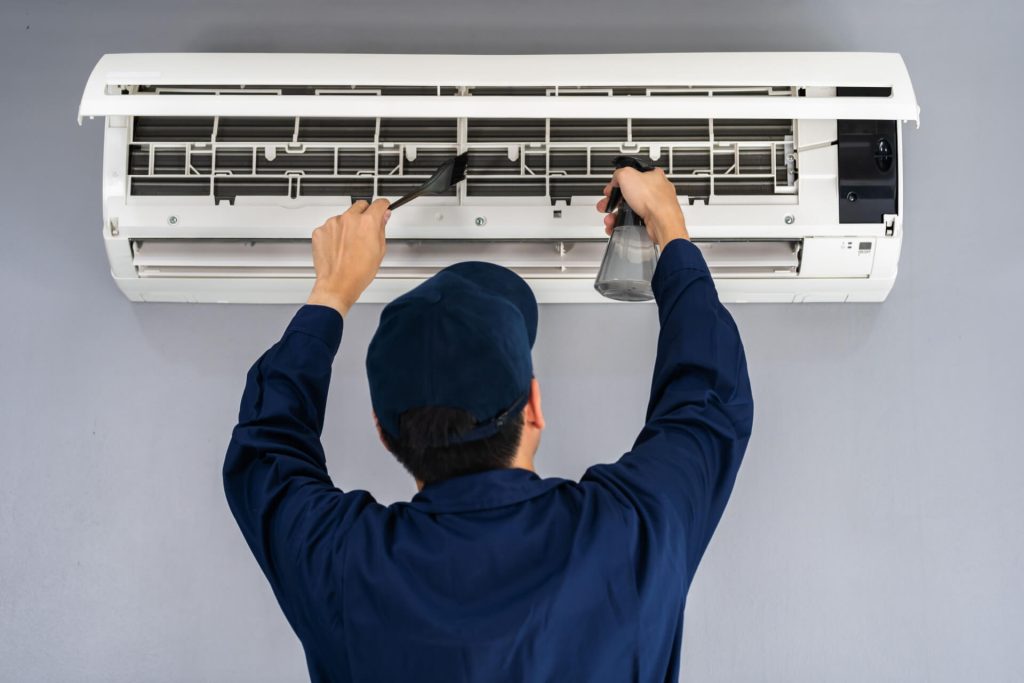
Signs your filter needs cleaning
Not sure when you cleaned it last?
Your air conditioner will often tell you when the filter’s struggling. Here are a few signs to watch for:
- Weak or reduced airflow
- Higher power bills than usual
- Strange noises
- Dust building up around vents
- Unpleasant smells when the system switches on
- Rooms that never quite cool down
If you notice any of these, then your filter is overdue for a clean.
Why cleaning your air conditioner matters
Regular filter cleaning and periodic professional deep cleans give you real benefits:
- Lower running costs: A clogged filter makes your air conditioner work harder, which uses more power
- Longer system life: Clean filters protect important components like the compressor
- Fewer breakdowns: Clean filters stop dust from spreading to coils and motors, reducing the risk of costly repairs
And here’s the big one for families…
- Better air quality: Ideal if you have kids, asthma sufferers, or family members with allergies
But don’t just take it from us, especially when it comes to lowering running costs. One of our recent customers in Gympie told us they’d noticed their electricity bill creeping up each summer. After giving their split system a deep, professional clean, they were surprised to see their next bill drop by almost 20%. For them, staying on top of a regular cleaning schedule made a real difference to both comfort and cost.
How to clean air conditioner filters
If it’s been a while since you last checked your filters, don’t wait. Follow this step-by-step guide on how to clean air conditioners.
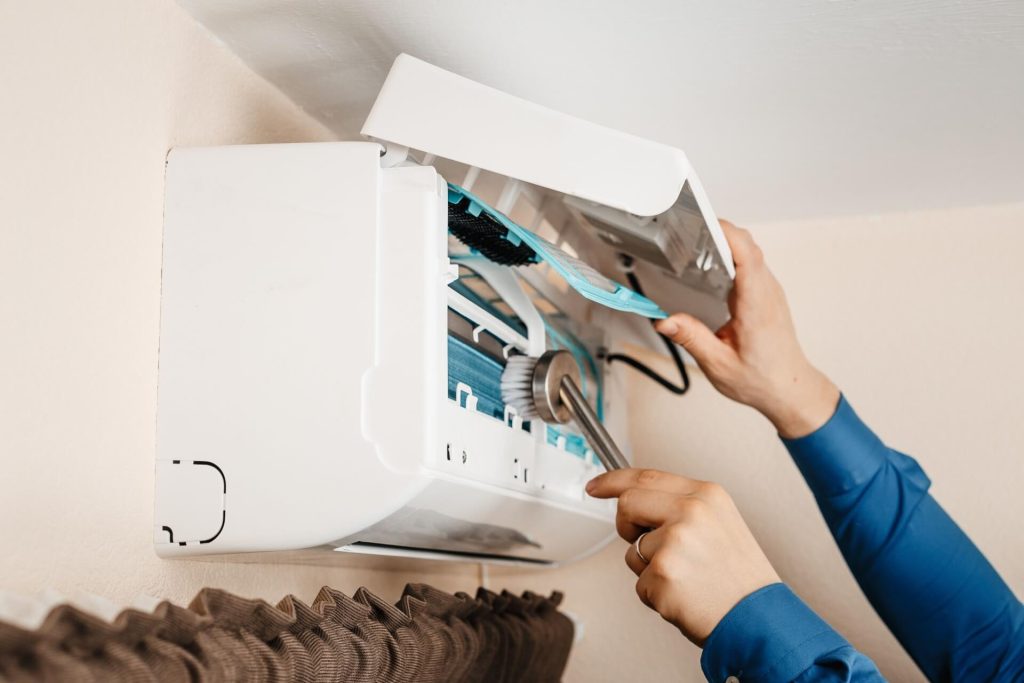
When to call in the pros
Cleaning a filter yourself at home is simple, but for ducted or commercial systems, it’s best to bring in a technician. That’s because beyond filter cleaning, a professional deep clean will keep everything running perfectly.
Even for home systems, having your unit serviced each year before summer hits will help keep it running smoothly. Our team works across Gympie, the Wide Bay and South Burnett regions, and, since we know just how brutal Queensland summers and winters can be, we’re available 24/7 to help keep you comfortable.
Find out more about our service and maintenance options.
Keep comfortable all year round
Regular cleaning and professional servicing are the best way to protect your comfort, your wallet, and your system.
Don’t leave it until you’re stuck with a breakdown in the middle of summer. Simply get in touch to book your professional air conditioner cleaning to keep your home cool, comfortable and stress-free all year round.
Please Share This
Related Posts
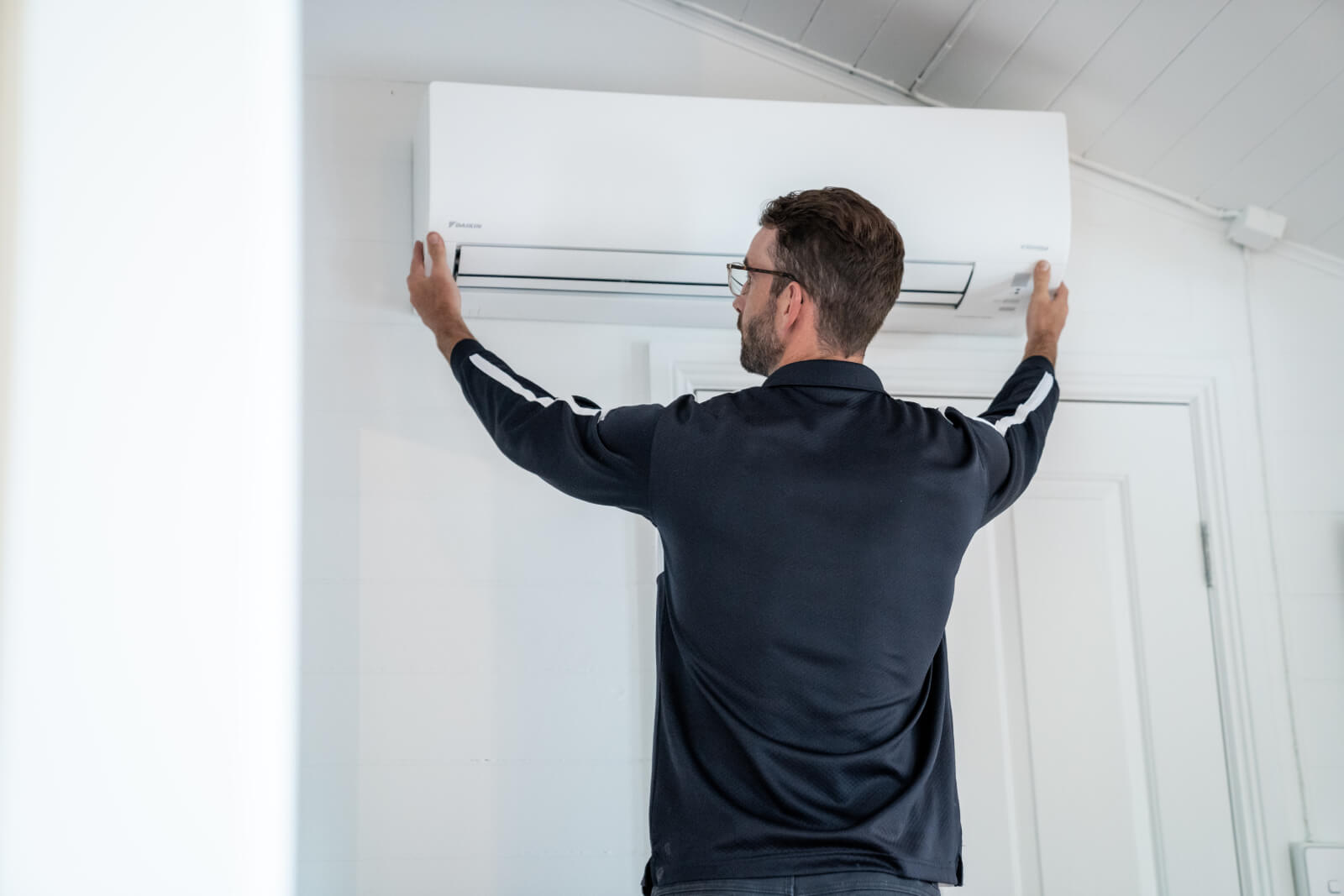
Top Reasons Your Air Con Isn’t Blowing Cold Air and How to Fix It
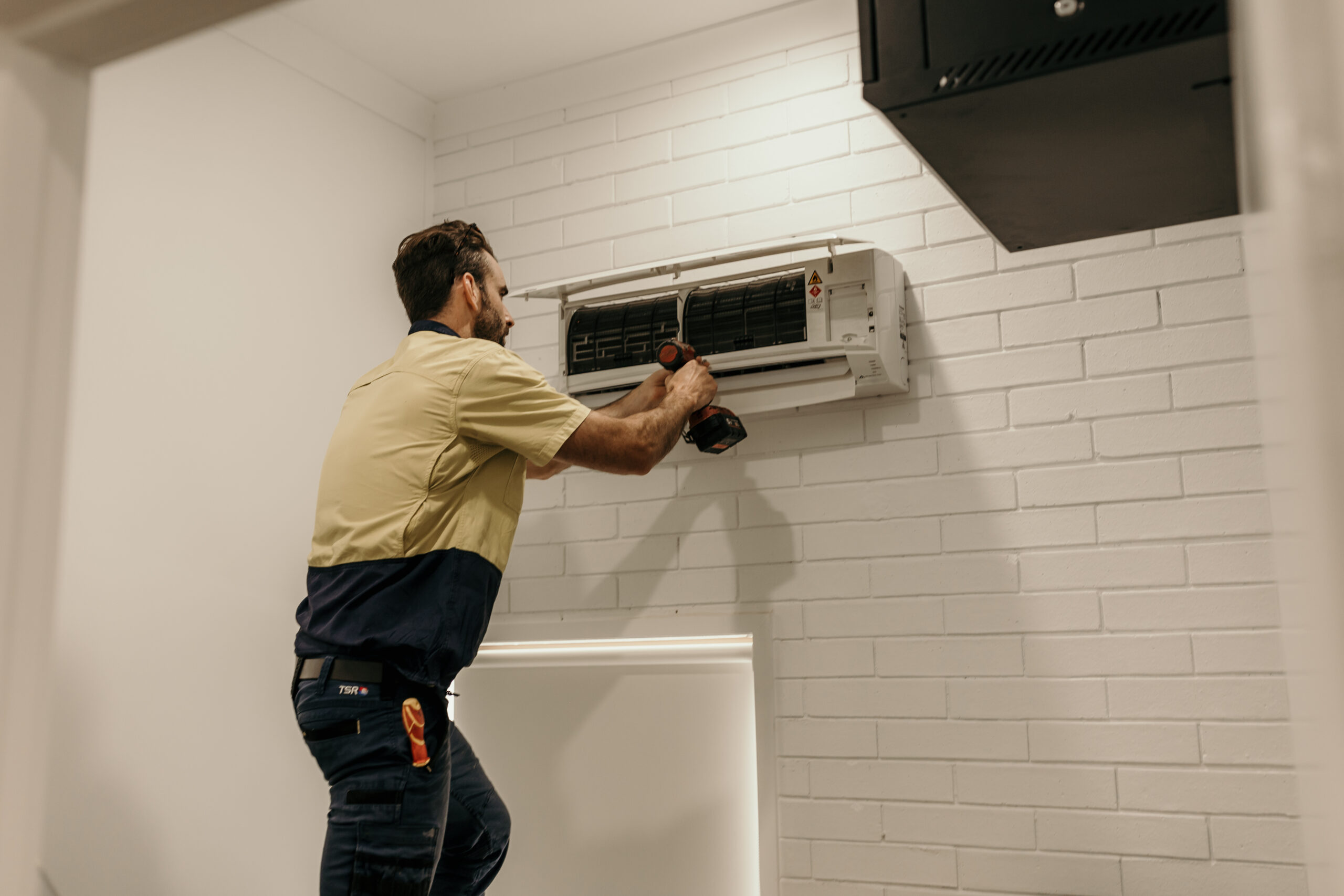
Has Your Air Con Stopped Working In Peak Heat? Here’s What To Do

